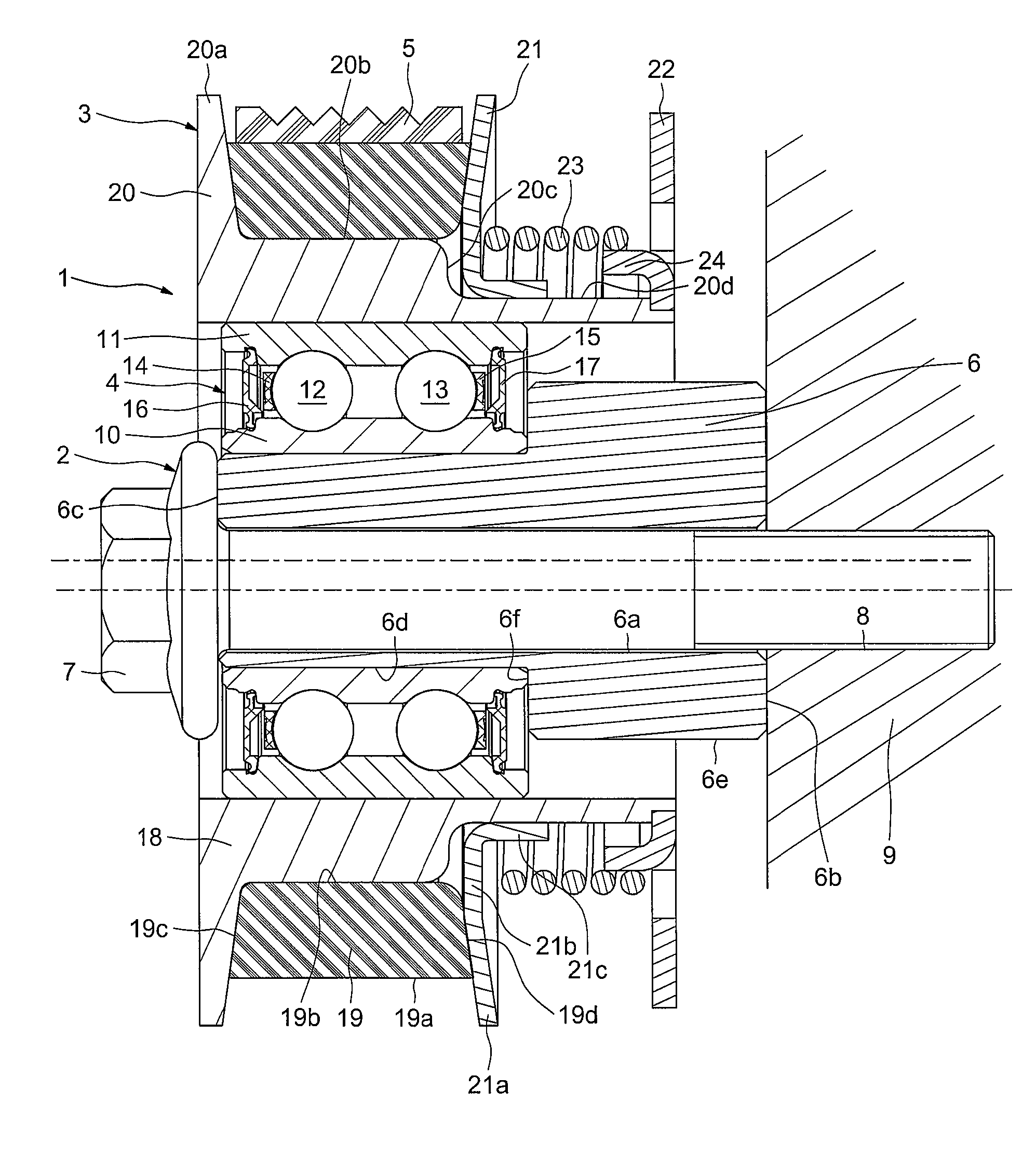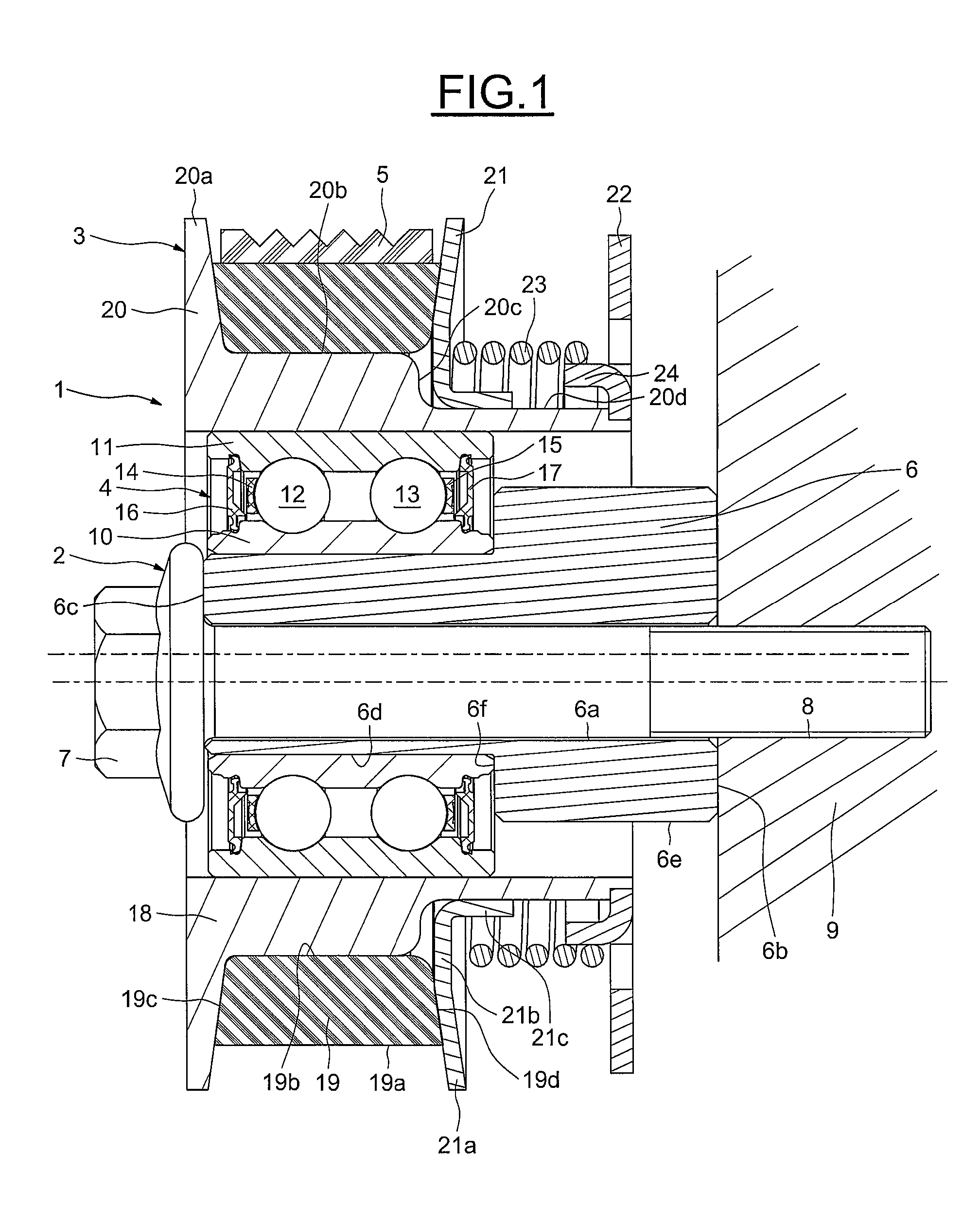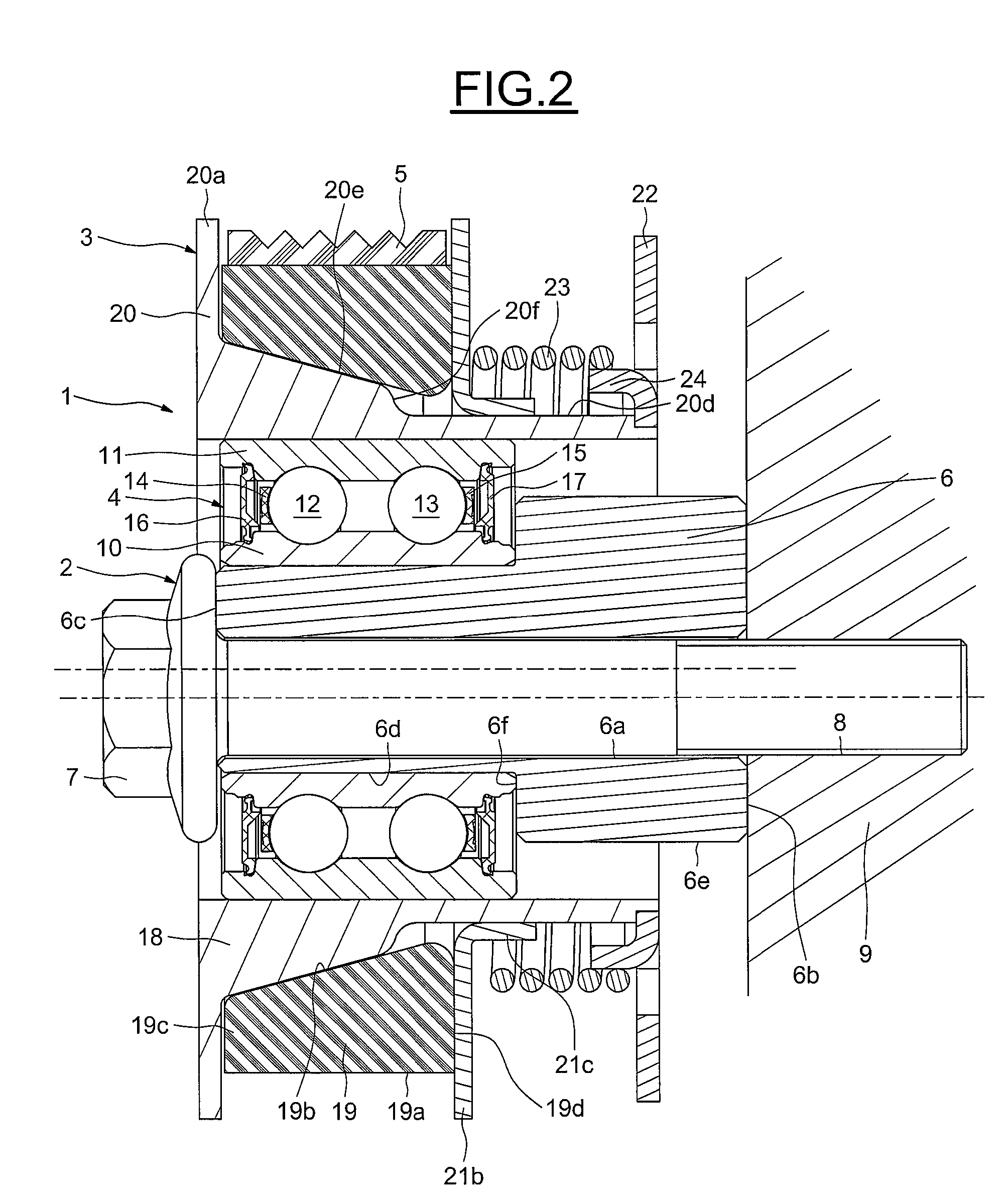Tensioning roller device
a technology of tensioning rollers and rollers, which is applied in the direction of gearing, mechanical equipment, hoisting equipment, etc., can solve the problems of high cost of manufacture, high number of components, and high cost of assembly, and achieves the effects of simple and economical manufacturing and assembly, and extremely small amount of vibration
- Summary
- Abstract
- Description
- Claims
- Application Information
AI Technical Summary
Benefits of technology
Problems solved by technology
Method used
Image
Examples
Embodiment Construction
[0034]As can be seen in FIG. 1, the tensioning roller device, referenced 1 in its entirety, includes a stationary part 2 and a rotating part 3 mounted to rotate with respect to the fixed part 2 by means of a rolling bearing 4. The rotating part 3 is designed to be in contact with a belt or the chain 5 in order to tension the belt or chain 5.
[0035]The fixed part 2 includes an adjustment eccentric 6 and a screw 7 positioned in a bore 6a of the adjustment eccentric 6. One end of the screw is engaged in a threaded hole 8 formed in a support 9, for example an engine block. The adjustment eccentric 6 is in contact via one radial face with the support 9 and via an opposite radial face with the head of the screw 7. The adjustment eccentric 6 has an exterior surface of revolution which is stepped with a large-diameter portion on the same side as the support 9 and a small-diameter portion on the same side as the head of the screw 7, the rolling bearing 4 being pushed onto the small-diameter p...
PUM
 Login to View More
Login to View More Abstract
Description
Claims
Application Information
 Login to View More
Login to View More - R&D
- Intellectual Property
- Life Sciences
- Materials
- Tech Scout
- Unparalleled Data Quality
- Higher Quality Content
- 60% Fewer Hallucinations
Browse by: Latest US Patents, China's latest patents, Technical Efficacy Thesaurus, Application Domain, Technology Topic, Popular Technical Reports.
© 2025 PatSnap. All rights reserved.Legal|Privacy policy|Modern Slavery Act Transparency Statement|Sitemap|About US| Contact US: help@patsnap.com



